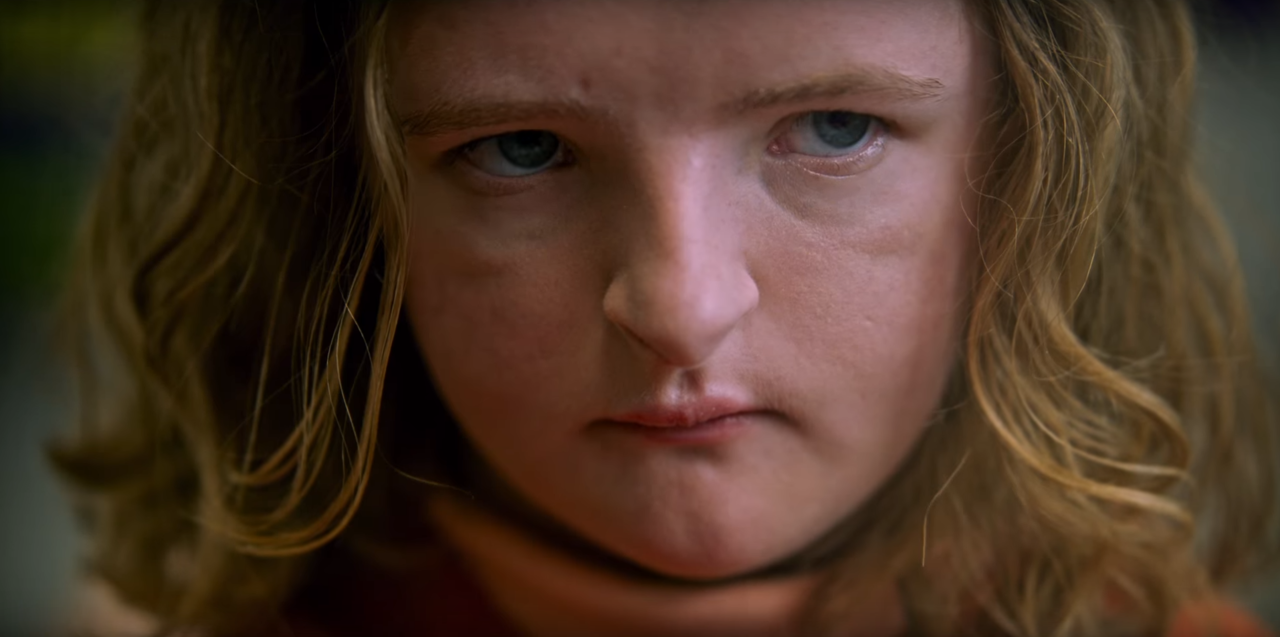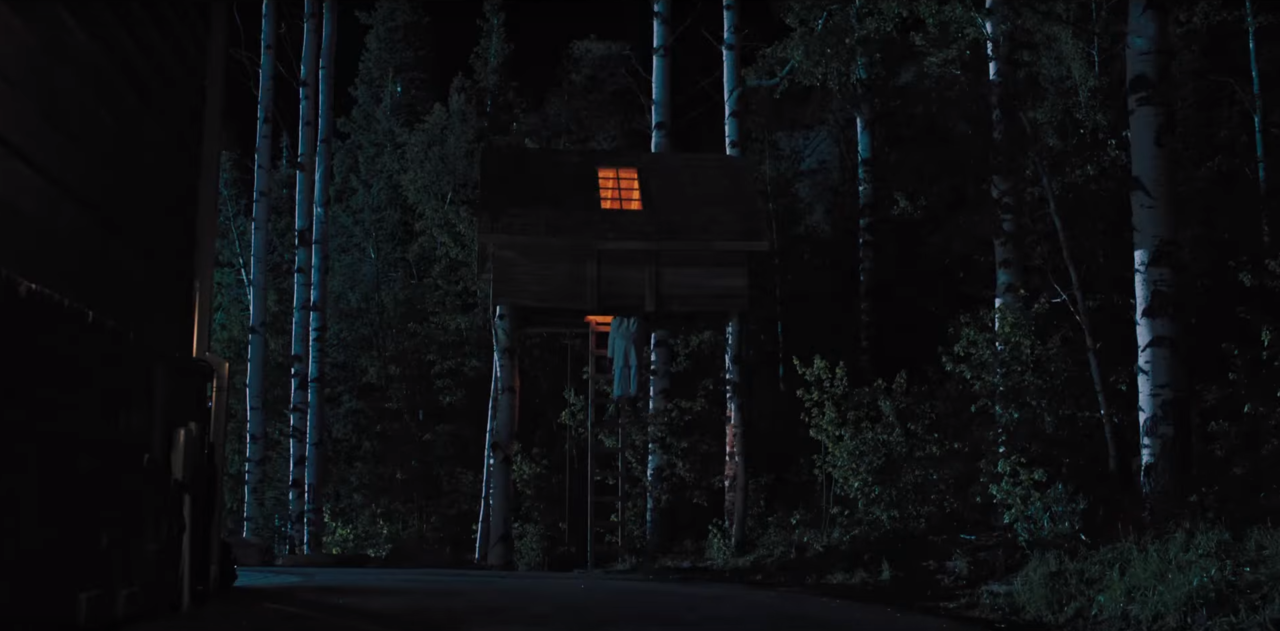Hereditary one hell of a horror movie, but it’s also a family drama that explores how tragedy and grief can twist people into unrecognizable shapes. Much of the film is spent developing the relationships between the characters, which makes the ending–where the story finally descends into utter, terrifying chaos–a little jarring.
Whether or not you liked Hereditary’s ending, there’s no denying that it’s sparked conversation among viewers. If you haven’t seen the movie yet, don’t read any further, because there are spoilers ahead!
Hereditary ends with Milly Shapiro’s Charlie, Gabriel Byrne’s Steve, and Toni Collette’s Annie all extremely dead, expended pawns in grandma’s demonic scheme to use Alex Wolff’s character Peter to summon a King of Hell, Paimon, into waking life. A full on demon summoning is probably not where most people expected this movie to go, and that’s no accident, according to Hereditary director Ari Aster.
“I’ve set up this patient, dark family drama, and then it just goes off the rails,” he described during a recent interview with GameSpot.
There were plenty of hints throughout the movie that this was how things would go. Obviously the grandmother was into some messed up stuff, and many viewers probably got cult vibes long before the big reveal. And Ann Dowd’s character Joan was clearly sinister in the way she deliberately inserted herself into the Grahams’ life through Annie. By the end, the movie even gets into a surprising amount of detail about the demon king, Paimon, that the cult worships.
“It’s interesting, because when you talk about the ending, it’s easy for it to sound a little kitschy, when you talk about it and you don’t see the rest of the movie, that’s so grounded,” Alex Wolff told GameSpot. But he added that he thinks it works both literally and metaphorically in the context of the whole film.
According to both Wolff and Milly Shapiro, the character Charlie is Paimon. She was born a demon. She’s not a person who’s been possessed–although she’s certainly a pawn–but a literal, physical manifestation of Paimon. That explains why she’s so strange, why grandma obsessively fawned over her, and why she has to die for the demon to enter a male host and the ritual to be completed (as you may have noticed, the cult’s symbol was etched into the phone pole that killed her, implying the cult had some influence over the events).

But Paimon/Charlie certainly isn’t the villain of the movie, and Paimon actually appears to be an unknowing participant in the cult’s scheme. Charlie doesn’t know what she is.
“She never knew anything different from how she is,” Shapiro told GameSpot. “With possession usually, there is a person trapped in there, but there never really was anything but [Paimon] for Charlie.”
“She is a demon,” Wolff succinctly explained. “But I feel like it’s so interesting–Ari took the approach that she’s not necessarily evil. She’s actually scared, and she’s just in this circumstance. She’s born this way, and she doesn’t feel connected to the rest of the world. And I think it’s kind of a sick, twisted, true analogy about being on the outside and having a mental disorder.”
There are hints throughout the movie that the demon king needs a male body to successfully use as a vessel. It’s outright stated at one point, but another example is Annie’s brother, who died before the movie’s events and allegedly suffered from schizophrenia. There’s one theory that he was actually the grandmother’s previous, failed attempt to summon Paimon. But at the end of Hereditary, there’s no failure–Charlie’s spirit, which was actually Paimon, enters Peter’s body, and the ritual is complete.
“He becomes Charlie, that’s the end, is that Charlie is Paimon,” Wolff said. “Really I believe, yeah, in a literal sense, he’s possessed by Paimon, which is Charlie, and he switches and becomes Charlie. And that’s the end of the movie.”
Aster confirmed that the ending is meant to be viewed literally, not simply as a metaphor for mental deterioration or as some sort of delusion on the characters’ part. “It is literal,” he said. “Nobody likes the ‘It was all a dream’ thing.”

That said, there are of course more subtle, metaphorical meanings to it as well. “In a more emotional sense, I believe that it’s almost like each member of the family’s psyche deteriorates, and the end for me is Peter’s psyche deteriorating, and everything smashing to a thousand little pieces and it being unfixable,” Wolff said.
“I believe you should always interpret things as exactly what you’re seeing, but it kind of doesn’t matter, because whatever it is, it turns into f***ing chaos, and that’s what it is,” he continued. “Whatever’s actually happening, the feeling is the hyperbole of absolute anarchy and the depths of guilt and the depths of trauma in a family, and feeling like you’re cursed.”
“For me, that ending is very much about how trauma can completely transform a person, and not necessarily for the better,” Aster explained. “When I was first pitching the film, I was describing it as a family tragedy that curdles into a nightmare, in the same way that life can feel like a nightmare when disaster is striking.”
“I wanted to make a film that collapsed under the weight of what these people are going through,” he continued. “It starts to split apart at the seams. I wanted the ending, even as it’s going crazy, to still feel like it was absolutely rooted in what these people were suffering through.”
Shapiro said she finds the ending extra interesting because it essentially switches to the cult’s point of view. For them, it’s a happy ending, while for the Graham family, “it’s absolute despair.”
“I think the thing that makes it so relatable is everyone has felt like they were cursed or had bad thing after bad thing happen, and no matter what the family does, it doesn’t stop,” she said. “They don’t really know what they’re getting themselves into, and they don’t know how to stop it, because there isn’t really a way. It’s something that was planned before they were born, and it’s something that was always going to happen.”
Hereditary is in theaters now. Read GameSpot’s full Hereditary review here, and find out why an hour of the movie wound up on the cutting room floor.
